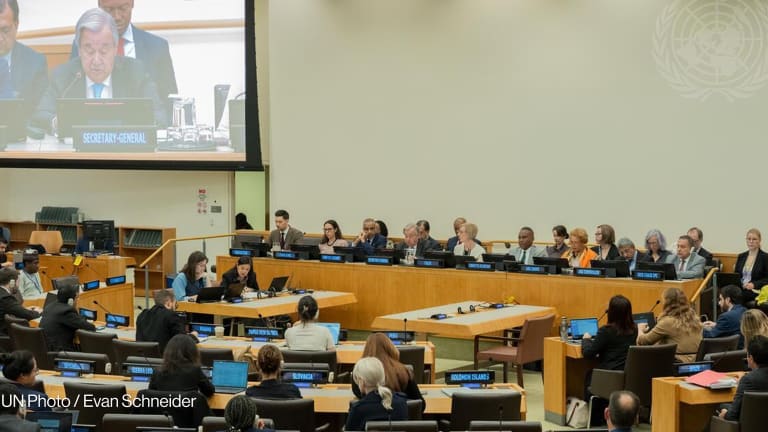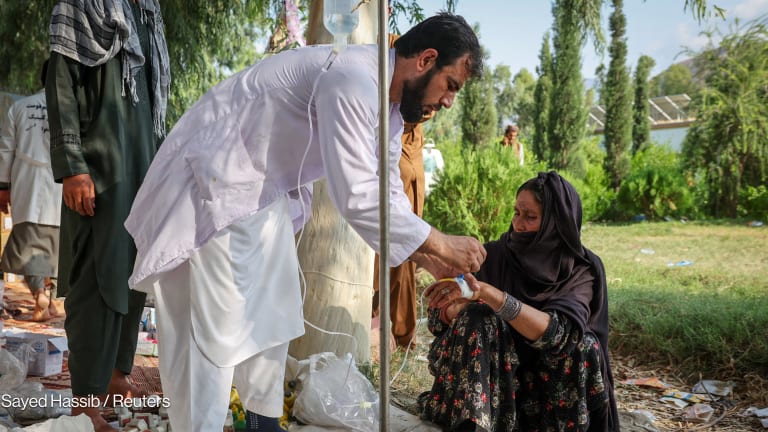The United Nations’ security response to the Taliban’s lightning 2021 overthrow of the United States-backed Afghan government was plagued by poor planning and a breakdown in communication, exposing a fundamental lack of staff trust in the organization’s ability to protect them at a time of extreme crisis, according to a highly confidential internal security review seen by Devex.
The 24-page review documents the U.N.’s challenging effort to “stay and deliver” services in Afghanistan when thousands of U.S. and NATO forces and foreign embassies evacuated, leaving a gaping security vacuum. But it also paints a portrait of extensive bureaucratic dysfunction in the U.N.’s security strategy for guiding the organization through one of the most violent and dangerous political and military transitions in years.
The report — commissioned by the U.N. Department of Safety and Security and chaired by an independent consultant — faulted the U.N. security system’s risk assessment of the safety of its workers in the months leading up to the toppling of the Afghan government. And it claimed that the U.N. repeatedly waited too long and missed opportunities to evacuate or relocate threatened staff in major Afghan urban centers, from Herat and Kandahar to Jalalabad and Kabul, before the Taliban captured those cities.








